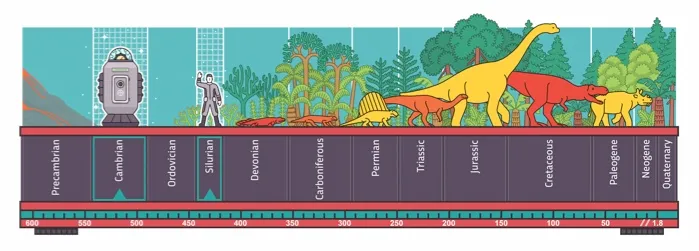Asked by: John Broderick, Blackburn
If we used a time machine to travel back to a prehistoric period, the earliest we could survive would be the Cambrian (around 541 million years ago). Any earlier than that and there wouldn’t have been enough oxygen in the air to breathe.

At the beginning of the Cambrian, the air at sea level would have felt like base camp at Mount Everest, but the climate was milder and more uniform than today. A bigger problem would be finding something to eat because there were no land plants or animals. You’d need to find a way of catching trilobites and other strange-looking shellfish, without wood to make a spear or plant fibre to make a fishing net. And you’d have to eat them raw, unless you could find a way to extract oil from these animals, or burn dry seaweed.
For a more comfortable existence, you might be better off skipping ahead 100 million years to the Silurian. This had slightly more oxygen and a warmer climate, as well as simple land plants and the first bony fish, which might have been more palatable. Unfortunately, you would have to share the land with prehistoric millipedes and spider-like creatures.
Subscribe to BBC Focus magazine for fascinating new Q&As every month and follow @sciencefocusQA on Twitter for your daily dose of fun science facts.
